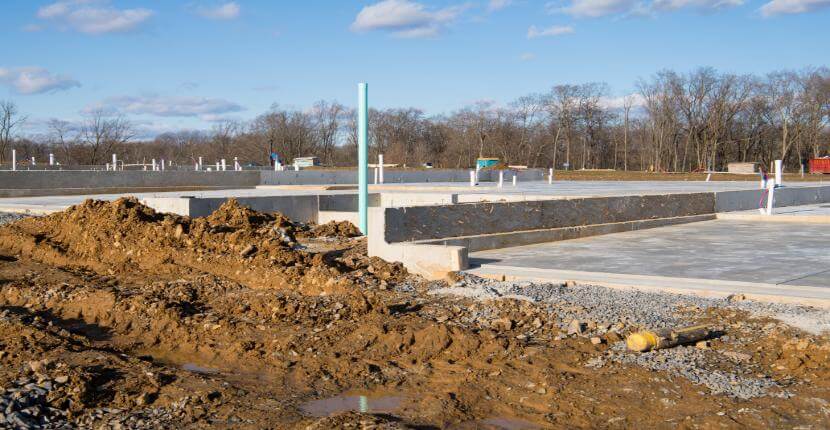
Soil Stabilisation in Bolton
Enquire Today For A Free No Obligation Quote
At Soil Stabilisation, we specialise in enhancing the strength, stability, and load-bearing capacity of weak soils to make them suitable for construction, infrastructure, and environmental management projects in Bolton.
Our innovative methods, including mechanical, chemical, and biological stabilisation, ensure long-lasting durability while controlling erosion and ground movement.
Serving clients in Bolton [ziip]and across the UK, we provide tailored solutions to meet the unique challenges of each site, from road construction and foundation preparation to erosion control and land reclamation.
What Are the Benefits of Soil Stabilisation?
Soil stabilisation in Bolton strengthens weak soils to support heavy loads. This is especially important in road construction and foundation work, where stability is crucial for structural integrity.
Improved workability and compaction make soil easier to handle during construction, reducing project delays and labour costs.
Stabilisation also minimises soil erosion, preserving ground stability and preventing environmental damage. Long-term, it helps reduce maintenance costs by maintaining the ground’s structural integrity, thereby supporting sustainable land management practices.
How Much Does Soil Stabilisation Cost in Bolton?
The cost of soil stabilisation in Bolton ranges from £20 to £100 per square metre. Mechanical methods like compaction or dynamic consolidation are generally less expensive than chemical stabilisation using lime or polymers.
Additional expenses may include site preparation, soil testing, and labour costs. For example, chemical stabilisation can be costlier due to the use of specialised binders. Despite the initial investment, stabilisation reduces long-term maintenance costs by improving soil performance and reducing erosion.
Contact Soil Stabilisation in Greater Manchester to get customised prices for using soil stabilisation services for your construction site.
What Are the Most Common Methods of Soil Stabilisation?
The most commonly used methods of soil stabilisation in Bolton include:
- Compaction: Using rollers or vibratory equipment to densify the soil, increasing its load-bearing capacity.
- Soil Nailing: Reinforcing loose soils with steel bars to enhance slope stability.
- Dynamic Compaction: Dropping heavy weights onto the soil to compress and consolidate loose ground.
- Lime Stabilisation: Reduces the plasticity of clay soils, making them more stable and workable.
- Cement Stabilisation: Forms a rigid, durable matrix, ideal for road bases.
- Polymer Injection: Improves cohesion by binding loose particles, often used in sandy soils.
- Bituminous Stabilisation: Uses asphalt emulsions for dust control and surface reinforcement.
- Vegetation Planting: Roots help stabilise slopes and reduce erosion.
- Bio-polymer Applications: Eco-friendly binders that improve soil cohesion without chemical additives.
How Is Soil Stabilisation Performed?
Soil stabilisation in Bolton begins with a site assessment, where soil analysis is conducted to determine factors like moisture content, composition, and stability requirements. Next, the preparation phase involves clearing debris, grading the area, and setting up necessary equipment.
During the application phase, stabilising agents such as lime or cement are mixed with the existing soil to enhance its properties. The treated soil is then compacted to reach the required density and load capacity, while moisture levels are closely monitored to ensure proper bonding and curing.
After application, the post-treatment phase includes allowing the soil to cure and set, followed by quality assurance testing to verify that the stabilisation is effective and meets project specifications.
How Long Does Soil Stabilisation Last?
The lifespan of stabilised soil typically lasts 20 to 30 years, while chemical methods like cement or lime stabilisation can last up to 50 years.
Environmental factors in Bolton, including moisture, temperature changes, and soil movement, can impact longevity. Regular maintenance and inspection help extend the effective lifespan, ensuring that stabilisation efforts remain durable and effective.
How to Maintain Stabilised Soil?
Maintenance of soil stabilisation in Bolton involves regular inspections to check for cracks, erosion, or settlement. In biologically stabilised areas, monitor vegetation growth to ensure continued root reinforcement. Maintaining drainage systems is crucial to prevent water accumulation, which can destabilise the soil.
In areas treated with chemical stabilisers, applying protective coatings, such as bitumen, may be necessary to shield the surface from water and weathering. Proactive maintenance helps maintain ground stability and soil integrity.
What Are the Typical Applications of Soil Stabilisation in Bolton?
Soil stabilisation in Bolton is essential across various sectors:
- Construction: Creating road bases, embankments, and building foundations.
- Infrastructure: Stabilising railway beds, airport runways, and port facilities.
- Environmental Management: Controlling erosion on slopes and riverbanks.
- Agriculture: Improving soil structure for better crop growth.
Are There Eco-Friendly Options for Soil Stabilisation?
Eco-friendly methods for soil stabilisation in Bolton include using natural binders like bio-polymers instead of synthetic chemicals. Vegetative stabilisation with deep-rooted plants helps retain soil structure naturally. Minimising carbon footprint through low-impact techniques and reusing stabilised soils promotes sustainable practices.
Choosing recycled materials and employing low-emission machinery during installation also reduces environmental impact.
Contact Soil Stabilisation in Bolton BL1 1 to get consultation on best practices regarding safety and sustainability of conducting soil stabilisation on your construction site.
Find More Info
Make sure you contact us today for a number of great soil stabilisation services in Bolton.
For more information on soil stabilisation in Bolton BL1 1, fill in the contact form below to receive a free quote today.
★★★★★
“We worked with Soil Stabilisation for a major groundwork project, and the results were outstanding. Their expertise in subgrade improvement and soil treatment made a real difference. I’d definitely recommend them.”
Naomi Bradshaw
Greater Manchester
★★★★★
“Soil Stabilisation delivered on time and with top-quality workmanship. Their team was knowledgeable, efficient, and professional throughout. Our site conditions improved dramatically.”
Gareth Ellison
Greater Manchester